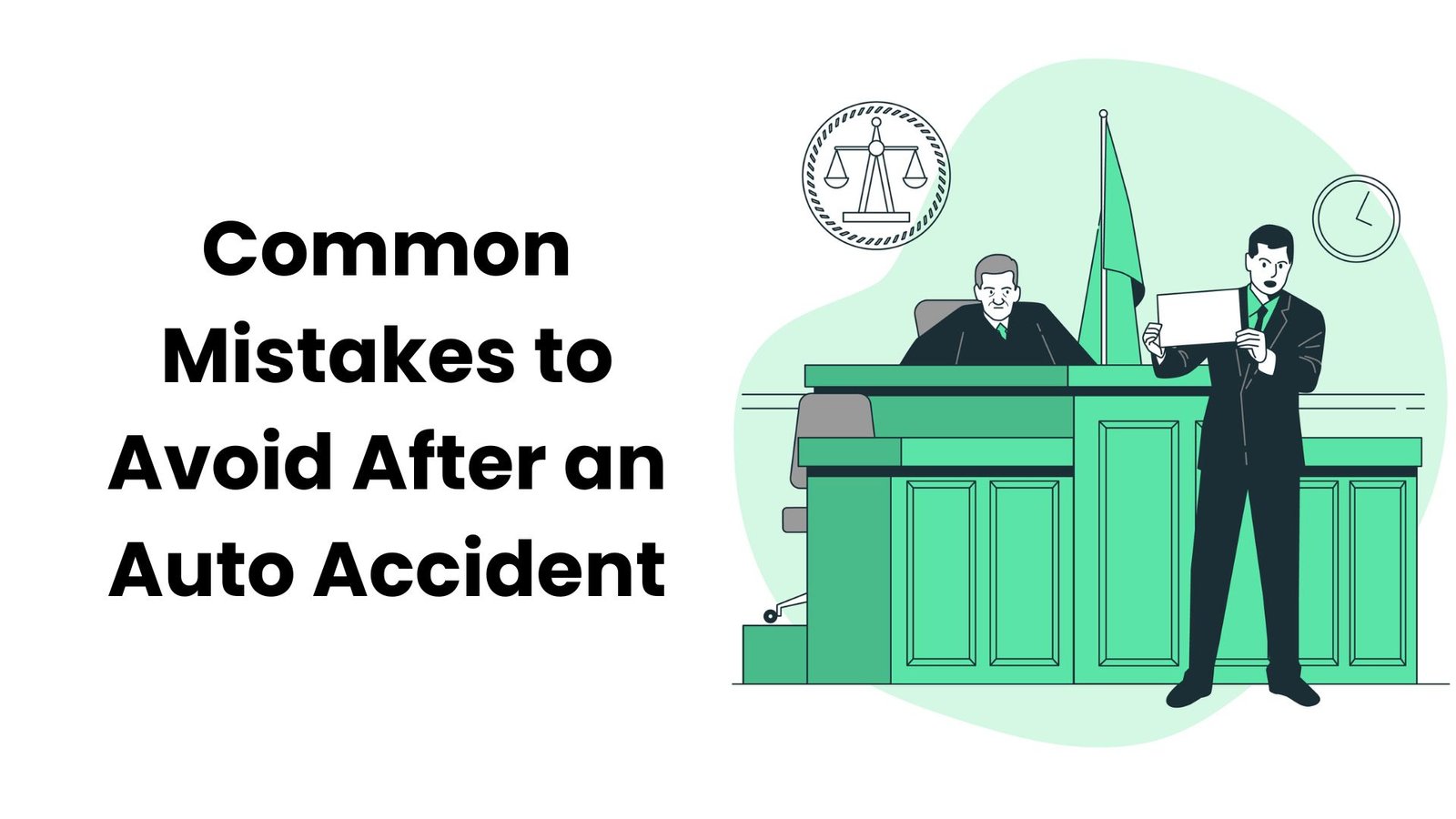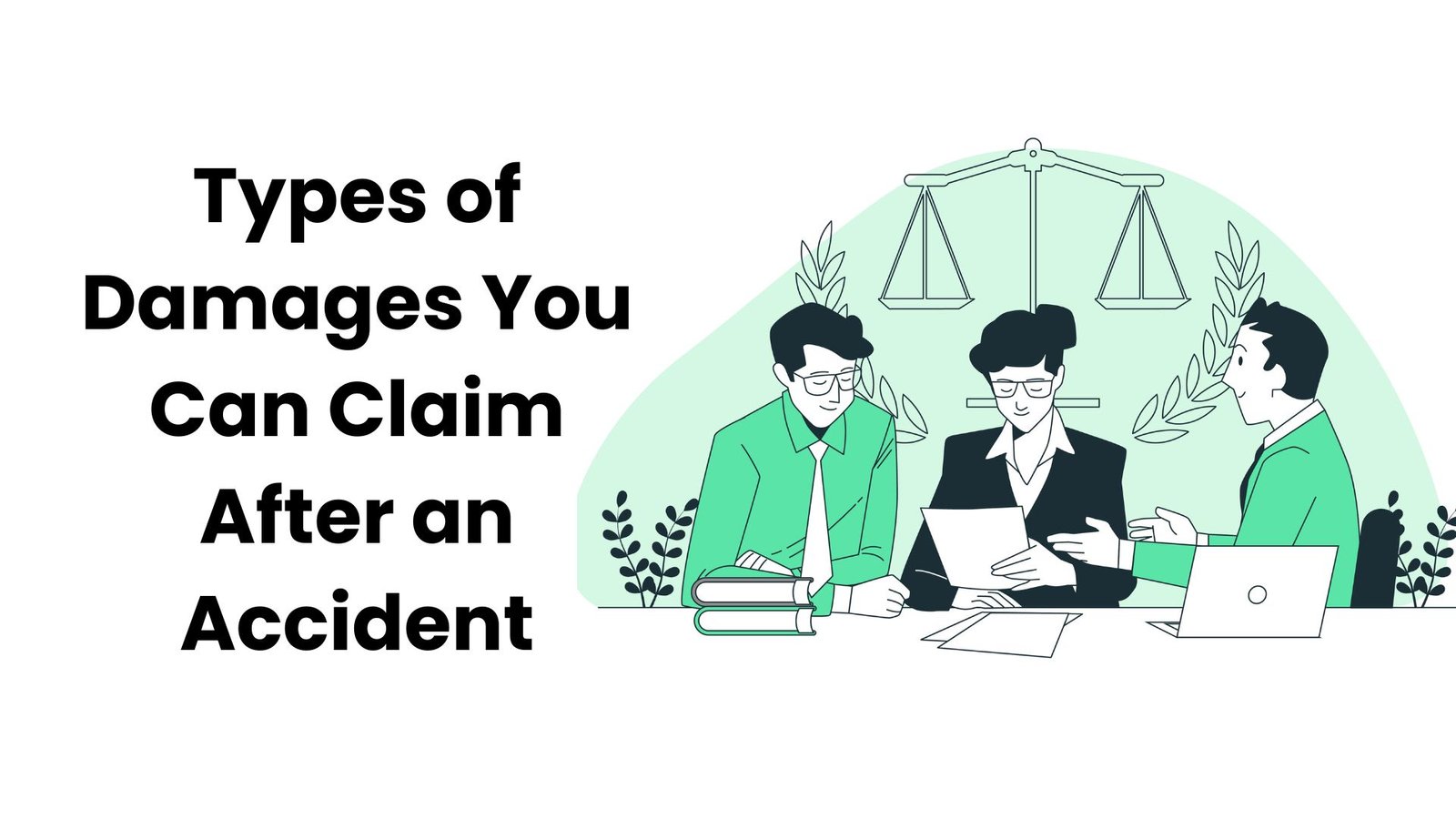Accidents happen when we least expect them. Whether it’s a fender bender or a more serious collision, the moments following an auto accident can be overwhelming and confusing. Emotions run high, adrenaline kicks in, and it can be hard to think clearly. But what you do—or don’t do—right after a car accident can significantly impact your physical well-being, legal rights, and financial future. That’s why it’s critical to understand the common mistakes to avoid after an auto accident so you’re prepared if the unexpected happens.
In this article, we’ll explore the key errors people often make after a car accident, explain why they’re problematic, and offer practical tips to protect yourself and your rights. Let’s dive in.
1. Never Leave the Scene Before Police Arrive
One of the most serious mistakes a person can make is leaving the scene before police arrive. Even if the accident seems minor or no one appears injured, leaving can be considered a criminal offense in many states—especially if injuries or significant property damage are later discovered.
Why is staying so important? The police create an official report that can serve as crucial evidence for insurance claims and legal proceedings. If you leave, you might miss out on your chance to share your version of events or ensure that the report is accurate.
Pro Tip: Always wait for law enforcement to arrive, even if the other driver suggests handling things informally. It protects both parties and ensures a fair record.
2. Seek Immediate Medical Attention—Even if You Feel Fine
Many people make the mistake of failing to seek immediate medical attention, especially if they don’t feel hurt right away. But injuries like whiplash, concussions, or internal trauma often don’t show symptoms until hours or even days later.
Getting a prompt medical evaluation helps catch hidden injuries and establishes a clear link between the accident and any resulting conditions. If you delay, the insurance company may argue your injuries weren’t serious or weren’t caused by the crash.
Example: Imagine feeling a bit shaken but otherwise okay after a rear-end collision. Two days later, you wake up with neck stiffness and severe headaches. If you didn’t get checked out at the time, you might struggle to prove the accident caused those symptoms.
3. Don’t Forget to Collect the Other Driver’s Insurance Info
In the chaos of the aftermath, it’s surprisingly common to not collect the other driver’s insurance information. This can make it difficult—if not impossible—to file a claim later.
Make sure you get the following from all drivers involved:
- Full name and contact info
- Driver’s license number
- License plate number
- Insurance company name and policy number
Also, if there are witnesses, gather their contact info too. Their statements can be vital.
Helpful Tip: Use your phone to take pictures of documents and ID cards so you don’t risk losing the information.
4. Don’t Admit Fault at the Scene
It’s natural to want to apologize after an accident, especially if you’re feeling polite or remorseful. But admitting fault at the accident scene can seriously hurt your case—even if you’re not legally responsible.
Fault should be determined after a full investigation by police, insurance companies, and possibly attorneys. Statements made in the heat of the moment can be used against you, even if they’re taken out of context.
Instead of apologizing, stick to the facts when talking to the police or the other driver.
5. Take Photos—Even If It Feels Awkward
Another huge mistake? Neglecting to take photographs of the accident scene. Photos provide invaluable visual evidence that can support your version of events, demonstrate damage, and capture conditions that may later change (like weather or traffic signs).
What to photograph:
- Damage to all vehicles
- Skid marks, broken glass, or debris
- License plates and nearby signage
- Injuries (if safe and appropriate to do so)
Even a few quick snapshots can make a big difference.
6. Keep the Crash Off Social Media
It might be tempting to post about your accident, especially if you’re frustrated or want support. But posting about the accident on social media can have unintended consequences. Insurance adjusters and opposing attorneys often review claimants’ social media profiles to find anything they can use to undermine your case.
For example, if you claim you’re seriously injured but post a photo hiking the next day (even if the hike was short and painful), it could be used to discredit you.
Rule of Thumb: Stay off social media until your case is resolved, or keep your profiles private and avoid discussing the accident entirely.
7. Avoid Giving a Recorded Statement Without Legal Advice
After an accident, the other party’s insurance company may contact you for a recorded statement. Many people unknowingly make the mistake of providing a recorded statement to the other party’s insurance company without understanding the risks.
These statements can be manipulated, taken out of context, or used to twist your words. It’s best to speak with a lawyer first and let them handle communication—or at least advise you on what to say.
Remember, the other insurance company is not on your side. Their goal is to minimize payouts.
8. Don’t Jump at the First Settlement Offer
If you’re dealing with mounting medical bills and vehicle repair costs, it’s tempting to accept a quick payout. But accepting the first settlement offer without legal consultation can leave you undercompensated.
Initial offers are often far lower than what you may be entitled to. A lawyer can help assess your claim’s real value—considering ongoing medical treatment, lost wages, pain and suffering, and future expenses.
Reality Check: Once you accept a settlement, you typically waive your right to any future claims related to the accident.
9. Be Cautious About What You Sign
After a crash, you may be asked to sign various documents—medical authorizations, insurance forms, or settlement agreements. Signing documents without understanding their implications can have serious consequences.
Some documents may limit your rights or grant insurers access to unrelated medical records. Others may finalize a settlement you didn’t fully grasp.
Smart Move: Never sign anything without reviewing it carefully—and ideally, have a personal injury attorney take a look.
10. Don’t Skip the Lawyer
Finally, one of the most impactful mistakes is not consulting with a personal injury lawyer. Even if the accident seems straightforward, an experienced attorney can protect your rights, negotiate with insurers, and ensure you’re fairly compensated.
You don’t have to navigate this process alone—and most personal injury lawyers work on a contingency fee basis, meaning you don’t pay unless they win your case.
Example: A lawyer might uncover that the other driver was using a work vehicle, making their employer liable and increasing your compensation options.
-
Failing to exchange insurance information after a minor accident can leave victims unable to claim compensation later, as injuries may develop days after the incident.
-
Many accident victims delay medical treatment, unaware that shock can mask injuries like concussions or internal trauma, weakening future legal claims.
-
Recorded statements given to the opposing insurance company are often used to minimize payouts by twisting words or prompting admissions of fault.
-
Settling a claim too quickly without understanding the full extent of injuries can result in inadequate compensation, especially for lifelong or chronic conditions.
-
People commonly rely on general practice lawyers, not realizing that personal injury law requires specialized expertise to negotiate with insurers and win fair settlements.
Final Thoughts: Your Actions Matter More Than You Think
Auto accidents are stressful, but avoiding these common mistakes can make a world of difference in how your case unfolds. From leaving the scene before police arrive to not consulting with a personal injury lawyer, every choice you make can affect your recovery, both physically and financially.
Stay calm, stay informed, and seek professional help when needed. If you’ve recently been in an accident, consider speaking with a qualified attorney who can help you understand your rights and build the strongest case possible.
Need help navigating the aftermath of an accident? Reach out to a trusted accident lawyer in your area today—you don’t have to face it alone.


